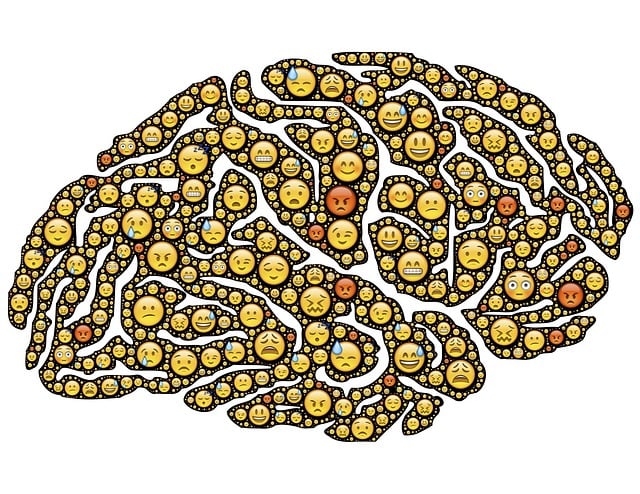Highlands Ranch Gender Identity Therapy emphasizes resilience as a key component of mental well-being, using the RFM (Resources, Factors, Mastery) framework to build inner strength. This approach integrates support networks, self-care, social connections, and personal development to enhance emotional resilience. Specializing in gender identity issues, the therapy provides a safe space for clients to explore and accept their authentic selves through tailored stress reduction, emotional validation, and crisis intervention techniques. Integrating RFM into daily life fosters adaptability, emotional intelligence, and growth mindset, empowering individuals to navigate challenges with confidence and self-acceptance, as supported by research in trauma support services and mental health policy.
Resilience is a powerful tool for navigating life’s challenges, especially for individuals exploring their gender identity. This article delves into the concept of RFM (Resilience, Flexibility, and Mastery), offering a framework to enhance emotional resilience. We explore how Highlands Ranch Gender Identity Therapy provides a safe haven for growth and self-discovery, combining practical exercises with everyday strategies to build mental toughness. Learn how integrating RFM into daily life can foster lasting resilience, specifically tailored for unique gender identity experiences.
- Understanding RFM: A Framework for Resilience
- The Impact of Gender Identity on Emotional Resilience
- Highlands Ranch Gender Identity Therapy: A Safe Space for Growth
- Practical Exercises to Build Mental Toughness
- Integrating RFM into Daily Life: Strategies for Long-Lasting Resilience
Understanding RFM: A Framework for Resilience

Resilience is a vital component of mental well-being, especially for individuals navigating complex life challenges, such as those seeking Gender Identity Therapy in Highlands Ranch. Understanding and cultivating resilience can empower people to bounce back from setbacks and adversity. The RFM framework offers a structured approach to building this inner strength.
RFM stands for Resources, Factors, and Mastery, which collectively represent the key elements of resilience. Resources refer to an individual’s access to support networks, coping mechanisms, and self-care practices. Factors encompass environmental influences, including social connections and community resources available to promote healing and growth. Mastery involves personal development through education, skill acquisition, and mindset shifts, aligning with Mind Over Matter principles. By incorporating these aspects into therapy programs, Mental Health Education Programs Design can effectively foster Inner Strength Development in clients.
The Impact of Gender Identity on Emotional Resilience

The role of gender identity in emotional resilience is a nuanced aspect often overlooked, yet it significantly influences an individual’s ability to navigate life’s challenges. Highlands Ranch Gender Identity Therapy has recognized this critical connection, understanding that the journey towards resilience is inherently tied to self-acceptance and understanding one’s place in society. For many, embracing their true gender identity can be a powerful catalyst for inner strength development.
In the context of Mental Health Policy Analysis and Advocacy, it’s essential to explore strategies that support individuals in building emotional resilience, especially those who have faced societal barriers due to their gender identity. Effective Communication Strategies play a pivotal role here; open dialogue about personal experiences fosters a sense of belonging and understanding, contributing to enhanced resilience. By addressing the unique challenges associated with gender identity, therapy sessions empower clients to develop coping mechanisms, ultimately leading to improved mental well-being.
Highlands Ranch Gender Identity Therapy: A Safe Space for Growth

In Highlands Ranch, Gender Identity Therapy serves as a beacon of safety and support for individuals navigating their gender identity. This specialized therapy provides a unique space where clients can explore their identities freely, fostering an environment that encourages growth and self-acceptance. Through compassionate cultivation practices, participants learn to cultivate inner strength, becoming more resilient in the face of societal challenges related to gender expression.
The therapy model incorporates various stress reduction methods tailored to address the specific needs of transgender individuals. By offering a safe haven where emotions can be expressed and validated, Highlands Ranch Gender Identity Therapy empowers clients to build resilience, enabling them to embrace their authentic selves with confidence and courage.
Practical Exercises to Build Mental Toughness

Building mental toughness is an essential aspect of resilience, and it’s where Highlands Ranch Gender Identity Therapy steps in to offer unique and practical exercises. These sessions are designed to empower individuals with tools that foster inner strength development, enabling them to navigate life’s challenges with enhanced confidence. Through a range of techniques, clients learn to manage stress, overcome fears, and develop a growth mindset.
The therapy program incorporates various activities focusing on crisis intervention guidance and conflict resolution techniques. By engaging in these exercises, individuals can improve their emotional regulation skills, enhance self-awareness, and build a support system that reinforces resilience. It’s about discovering the inner resources to bounce back from setbacks and embrace life’s opportunities with renewed vigor.
Integrating RFM into Daily Life: Strategies for Long-Lasting Resilience

Integrating RFM (Resilience, Flexibility, and Mastery) into daily life is a powerful strategy for building long-lasting resilience, especially for individuals navigating complex challenges like those offered by Highlands Ranch Gender Identity Therapy. This approach encourages people to cultivate emotional intelligence, a key component in managing stress and adversity. By practicing RFM techniques, individuals can develop the flexibility to adapt to changing circumstances and the mastery to overcome obstacles.
Incorporating these strategies into daily routines can significantly contribute to one’s overall mental health and well-being, as supported by research in Trauma Support Services and Mental Health Policy Analysis and Advocacy. It empowers people to face challenges head-on, fostering a sense of control and resilience that extends beyond therapy sessions. Whether it’s through mindful practices, cognitive reframing, or setting achievable goals, RFM provides practical tools for enhancing emotional well-being and navigating life’s unpredictable landscape.
In conclusion, building resilience through RFM exercises offers a transformative path to emotional well-being, especially within the supportive environment of Highlands Ranch Gender Identity Therapy. By integrating these strategies into daily life, individuals can cultivate mental toughness and navigate challenges with enhanced adaptability. This holistic approach encourages personal growth, fostering a sense of empowerment and resilience that resonates far beyond the confines of therapy sessions.













